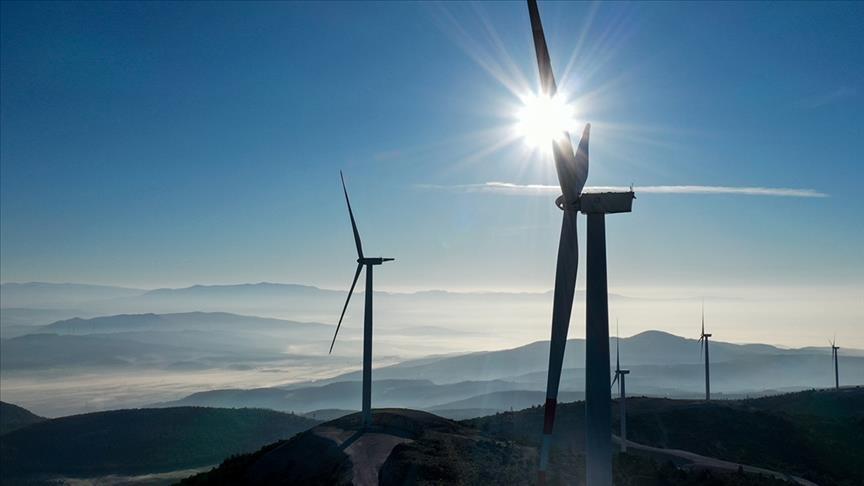Türkiye could reduce its fossil fuel import dependency in electricity generation from the 50% level at the end of 2021 to 25% by 2030 with increased solar and wind capacity, a new analysis from think tank Ember showed Tuesday.
Last year, the share of natural gas and imported coal power in total electricity generation was 32.7% and 16.7% respectively.
Türkiye's current installed solar capacity is about 8.8 gigawatts, but capacity needs to reach 40 gigawatts by 2030, equivalent to the addition of 4 gigawatts per year, to increase the share of solar in power generation.
Wind needs to increase from its current level of 11.1 gigawatts to 30 gigawatts by 2030, corresponding to the addition of 2.5 gigawatts of wind power every year.
Türkiye adds about 1 gigawatt annually of solar and wind power capacity separately. The share of wind and solar in the country's electricity generation was 13.6% last year.
However, with capacity increases, the share of solar and wind in electricity generation in the country could reach a level between 34% and 38% by 2030 while cutting import dependency by half.
The analysis is mindful of Türkiye's ratification of the Paris Climate Agreement and its net zero emission target for 2053, which requires a new energy plan focusing on increasing clean energy capacity.
To this end, the analysis said that decarbonization will provide Türkiye with more energy independence.
'The recent developments worldwide have shown how risky it is to be dependent on fossil fuels such as coal and natural gas. The solution to this is cheap and clean energy sources like solar and wind. Solar and wind will play a leading role in ensuring energy independence for countries with limited energy resources like Türkiye in the coming years,' Ufuk Alparslan, the regional lead for Türkiye, Ukraine and the Western Balkans at Ember, said.
By Nuran Erkul Kaya
Anadolu Agency
energy@aa.com.tr


